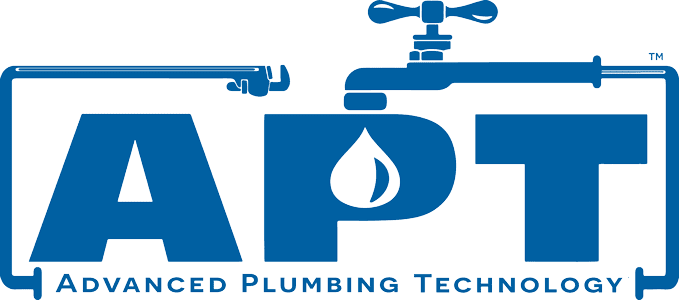Plumbing Maintenance for Busy Lifestyles: Tips for On-the-Go Individuals
September 25th, 2023Posted by Brian Shoemaker
Welcome to Advanced Plumbing Technology’s comprehensive guide to plumbing maintenance tailored for individuals leading busy lives. In today’s fast-paced world, juggling work, family, and personal commitments often leaves us with limited time to address essential home maintenance tasks. Plumbing problems can arise at any moment, disrupting our routines and causing unnecessary stress. That’s why we’ve crafted this guide to help on-the-go individuals effectively manage their plumbing systems and prevent issues from escalating.
Prioritize Preventive Maintenance
Prevention is the key to avoiding costly and inconvenient plumbing emergencies. Incorporating preventive maintenance into your routine can save you time, money, and hassle in the long run. Here are some simple yet effective steps you can take:
- Regular Inspections: Schedule monthly inspections of visible pipes, faucets, and fixtures. Look for any signs of leaks, corrosion, or mineral buildup.
- Check Water Pressure: High water pressure can strain pipes and cause leaks. Invest in a pressure gauge and ensure your water pressure is within the recommended range.
- Inspect Seals and Caulking: Damaged seals around fixtures can lead to water leakage. Regularly inspect and replace seals and caulking as needed.
Mindful Kitchen Practices
The kitchen is often the heart of a busy home, and it’s also a hub where plumbing issues commonly occur. By adopting mindful practices, you can prevent clogs and maintain the efficiency of your kitchen plumbing:
- Dispose of Grease Properly: Avoid pouring cooking oil and grease down the drain. These substances can solidify and cause clogs. Instead, collect them in a container and dispose of them in the trash.
- Use a Sink Strainer: Place a sink strainer in your kitchen sink to catch food particles and debris. Empty it regularly to prevent clogs from forming.
- Run Cold Water: When using the garbage disposal, run cold water to solidify grease and help break down food particles.
Bathroom Care for Busy Professionals
Your bathroom is another area that requires special attention to prevent plumbing issues. Follow these tips to maintain a smoothly functioning bathroom:
- Avoid Flushing Non-Flushable Items: Only flush toilet paper down the toilet. Items like wipes, cotton balls, and feminine hygiene products should be disposed of in the trash to prevent clogs.
- Maintain Shower Drains: Hair and soap scum are common culprits for shower drain clogs. Use a drain cover to catch hair and clean the drain regularly.
- Address Dripping Faucets Promptly: A dripping faucet not only wastes water but can also indicate an underlying issue. Don’t ignore it; fix it as soon as possible to prevent further damage.
Water Heater Efficiency
Your water heater plays a crucial role in your daily routine. To ensure it operates efficiently and reliably:
- Flush the Tank: Over time, sediment can build up in the water heater tank, affecting its efficiency. Regularly flushing the tank removes sediment and improves performance.
- Check the Pressure Relief Valve: Test the pressure relief valve annually to ensure it’s functioning properly. This valve prevents excessive pressure buildup inside the tank.
- Set the Right Temperature: Adjust the water heater temperature to around 120 degrees Fahrenheit (49 degrees Celsius) to prevent scalding and conserve energy.
Professional Plumbing Inspection
While DIY maintenance is valuable, it’s essential to enlist the help of professionals for a thorough plumbing inspection at least once a year. Trained plumbers can identify hidden issues that may not be apparent to the untrained eye. During the inspection:
- Check for Leaks: Plumbers can use advanced tools to detect leaks, even those hidden within walls or underground.
- Assess Water Quality: Professionals can test your water for contaminants and suggest appropriate filtration solutions if needed.
- Inspect Sewer Lines: A sewer line inspection can uncover potential blockages or damage that could lead to messy backups.
Emergency Preparedness
No matter how well you maintain your plumbing, emergencies can still occur. Being prepared can minimize the damage and stress associated with unexpected plumbing issues:
- Know the Main Shut-Off Valve: Familiarize yourself with the location of the main shut-off valve. In case of a major leak, shutting off the water quickly can prevent extensive damage.
- Have a Plunger Handy: A plunger is your first line of defense against minor toilet clogs. Keep one in each bathroom for easy access.
- Maintain Contact Information: Keep the contact information of a reputable emergency plumber on hand for situations that require immediate attention.
Conclusion
Maintaining a well-functioning plumbing system is crucial for the comfort and functionality of your home, especially for individuals leading busy lives. By incorporating these tips from Advanced Plumbing Technology into your routine, you can prevent plumbing issues, save money on repairs, and enjoy peace of mind. Remember that while DIY efforts are valuable, regular professional inspections are essential to catch and address potential problems before they escalate. With a proactive approach to plumbing maintenance, you can navigate your busy lifestyle without the added stress of plumbing emergencies.
